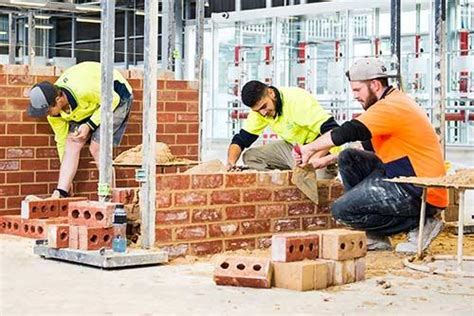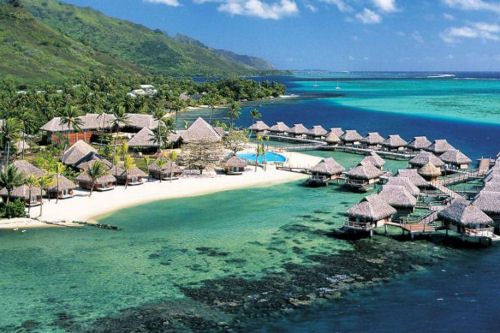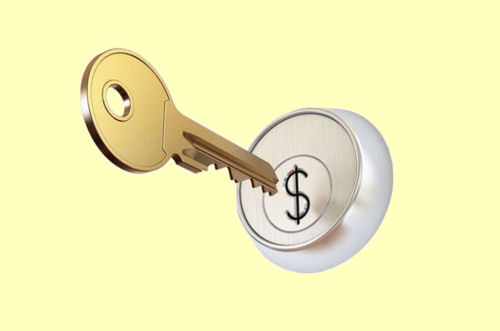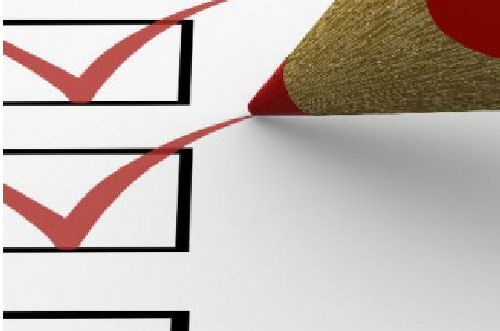Leasing Commercial Premises in Thailand
The two common options for leasing commercial premises in Thailand are RENT, and SALE and RENT - both options can be direct leases or sub-leases
The two common options for leasing commercial premises in Thailand are:
- RENTAL ONLY. Lease the premises (with or without furnishings and/or equipment) for a monthly rent and pay a Security Deposit and/or Key Money (direct Lease or Sub-Lease), and
- SALE AND RENT. Buy the existing business (usually with furnishings and/or equipment, goodwill and/or other assets), rent the premises for a monthly rent and pay a Security Deposit and/or Key Money (direct Lease or Sub-Lease).
Lease Period
The common lease period offered by Landlords in Thailand is 3 years with 2 further options to renew for 3 years each. It is commonly called a 3x3x3 Lease or a 3+3+3 Lease or a 3 year rolling Lease. Some people mistakenly refer to it as a 9 year lease. It is not - it is a 3 year lease with an option to renew for an additional 3 years and on completion of that renewal, another option to renew for another additional 3 years.
12 months leases are also common in Thailand, but normally only in extremely sought-after locations where the rents are often quite high and the turnover of lessees is also generally high.
Leases can be registered with the Thailand Land Office, but most are not. Landlords are hesitant to make a lease longer than 3 years at a time because they often take the lease renewal time to re-assess the rental value - it is even sometimes stated in the Lease Contract. An increase in rent of up to 10% per three year lease is common.
Tenants generally want a long lease for security of tenure and re-sale value, and especially if the tenancy involves an expensive fit-out. Tenants too, often need the Lease Contract to be in a company name and this can sometimes cause a problem for the Landlord. Some Landlords will not put a lease in a company name because they then become liable for Withholding Tax and Property Tax. While it may suit their requirements of avoiding complicated tax returns, if you operate in a company structure and your lease and receipts are not issued in a company name, then you may not be able to claim your rent and other payments to the Landlord as tax deductions against your company. You should check this with prospective Landlords before you enter into any Lease or Sub-Lease Agreement.
Rent
Rent is the price a lessee (or sub lessee) pays to occupy and use a property in accordance with a lease (or sub lease) agreement. Rent is calculated by the landlord (or lessee in the case of sub leases) and is normally not negotiable. It is paid in advance of tenancy usually each month. Sometimes landlords require rent to be paid quarterly, six-monthly or even annually in advance.
Security Deposit
A Security Deposit (sometimes also known as a Rental Bond) is an amount of money a tenant or lessee pays to a Landlord at the start of a leasehold tenancy. Paid upon signing of the lease contract, it is held by the Landlord for the duration of the tenancy and is paid back to the tenant at the end of the tenancy provided no money is owed to the Landlord for rent, damages or other costs.
Security Deposits are not transferable. If a tenant ceases their tenancy, they are responsible for seeking a refund, and the new tenant is responsible for payment of the new Security Deposit.
Not all Landlord's charge a Security Deposit, but where they do, it is common that the amount will be either 2 or 3 times the rental amount, for example if the rent is 50,000 baht, the Security Deposit is typically 100,000 baht or 150,000 baht.
If a tenant's rent is increased during the period of the tenancy and after payment of the Security Deposit, the Landlord may ask for an additional payment for the Security Deposit. For example - rent was 50,000 baht and you paid 100,000 baht Security Deposit (equivalent to 2 months' rent). Three years later, rent is increased to 55,000 baht. The Landlord may ask that you lodge an additional 10,000 baht as Security Deposit. In practice however, this rarely occurs.
Upon payment of the Security Deposit, the Tenant should be given an official receipt indicating the date paid, amount and reason for payment - Security Deposit for tenancy at XYZ. It is important for tenants to keep this receipt as it may actually be required some years later when you terminate your tenancy and seek a refund.
Lessees who sub lease may also collect a Security Deposit from Sub- Lessees in the same way as Landlords do.
Key Money
Key Money is a non-refundable amount of money sometimes paid by lessees to landlords at the commencement of a lease. It can be paid instead of a security deposit, or in addition to a security deposit. Sometimes the amount paid is paid only once during the tenancy, in other situations it is paid at regular intervals thereafter - commonly upon every lease renewal.
Landlords often charge key money in exchange for a lower monthly rent. For example, if a landlord requires 100,000 baht a month rent (1.2 million baht a year or 3.6 million baht every 3 years), they may instead, choose to charge 1.4 million baht key money every 3 years and rent of only 60,000 baht a month. This option works out at about the same amount over a three year lease period. Landlords like the key money option better because it guarantees them income even if the lessee terminates their lease early. They also perceive it is better for the tenant as it makes the tenant's monthly rental commitment easier to meet.
Key money is not charged in all locations in Thailand, but is particularly common in tourist areas like Pattaya, Phuket, and Sukhumvit and Silom in Bangkok.
For a more detailed explanation of key money, please see Key Money in Thailand
Lease Contract (or Lease Agreement, or Rental Agreement)
A lease is a contractual arrangement calling for the lessee (tenant or occupant of the property) to pay the lessor (landlord or property owner) for use of the property and its improvements. Broadly put, a lease agreement is a contract between two parties, the lessor and the lessee. The lessor is the legal owner of the property; the lessee obtains the right to use the property in return for regular rental payments. The lessee also agrees to abide by various conditions regarding their use of the property.
A lease is a legal contract, and thus enforceable by all parties under the contract law of Thailand.
Common elements of a lease agreement in Thailand include:
- Names of the parties of the agreement,
- The starting date and duration of the agreement,
- Identifies the specific premises (by street address) being leased,
- Provides conditions for renewal or non-renewal,
- Has a specific consideration (a lump sum, or periodic payment/s) for granting the use of the premises - In Thailand referred to as Key Money
- Has provisions for a security deposit and terms for its return
- May have a specific list of conditions which are therein described as Default Conditions and specific Remedies
- May have other specific conditions placed upon the parties such as:
- Need to provide insurance for loss
- Restrictive use (alcohol not to be sold on the premises, gas cooking prohibited, etc)
- Which party is responsible for maintenance
- Termination clause (describing what will happen if the contract is terminated early or cancelled, stating the rights of parties to terminate the lease, and their obligations)
Assets
Assets commonly (but not in all cases) refer to moveable items like furnishings and equipment, but not immovable items like fittings and fixtures. It is important when entering into a lease or sub-lease to understand what assets are included in the lease, what the ownership status is, and who is responsible for the maintenance and upkeep of the assets.
Where businesses are offered for sale and rent, typically furnishings and equipment are included in the sale price and are then owned by the buyer/lessee. In these cases, the owner/lessee is also responsible for their upkeep and maintenance, or may even choose to sell them. In a restaurant for example, the kitchen equipment and dining room tables and chairs, crockery and cutlery are all most likely included as assets.
Sometimes businesses offered for rental only, will physically include assets, and the lessee will become responsible for their upkeep and maintenance, but will not own them. This is common for buildings converted to small hotels or guest houses.
Prior to buying a business and/or entering into a lease arrangement, buyers will be provided with a list of assets included in the sale/lease and the terms under which they are given.
How to Find a Tenant/Buyer
It is hard to believe that in the 21st Century, many Thais rely upon an advertisement in their shop window to lease their premises. This may in fact explain why there appears to be many empty buildings and shops around Thailand. There is always good demand for good properties and buyers don't always come from the same area where the property is located. It is important therefore to advertise commercial spaces and properties to those who would potentially buy or lease them.
At Asia Business Brokers, we always have a list of people waiting to rent good shop houses in good locations to convert them into businesses. Unlike a real estate agency, who sells and rents residential properties, we only deal in commercial properties and land for commercial use. Our advertising and database of potential buyers/lessees is therefore targeted specifically to people looking for commercial properties. We have a very good success rate leasing commercial premises in Thailand.
More Information
For more information on leasing your commercial premises or land, or if you are a potential buyer or lessee looking for good properties for your business, please contact us.
Posted by Ken
| Although originally from Melbourne, Australia, Ken has lived and worked in nearly all major cities in Australia and, since 2005, SE Asia. He has founded, operated and partnered in companies, partnerships and sole trader businesses in three countries. His particular passion is small business and all of his companies today are based in Thailand and are real estate related. |




 Improvements to Leased Property
Improvements to Leased Property Lombok - A New Bali?
Lombok - A New Bali?

0 Comments